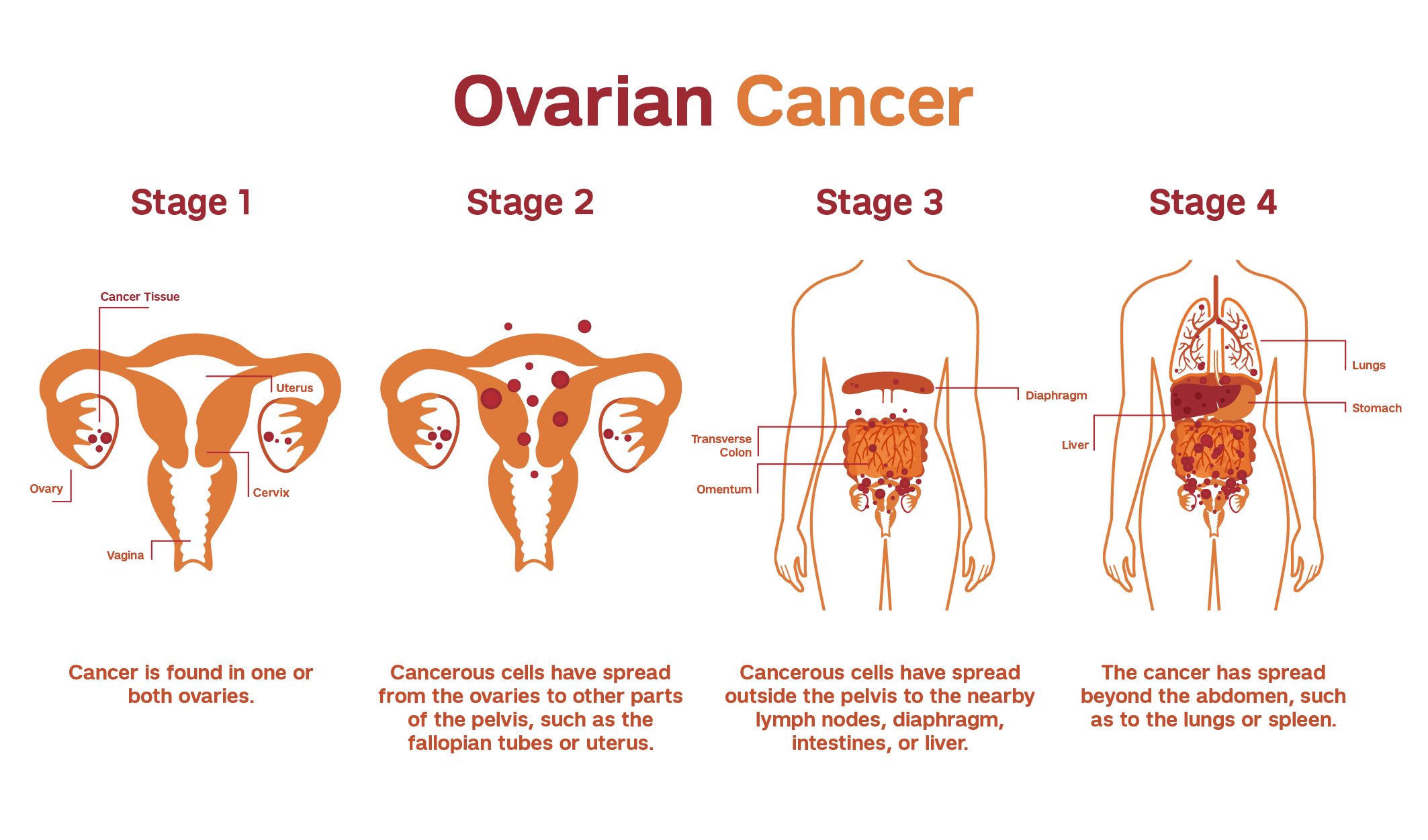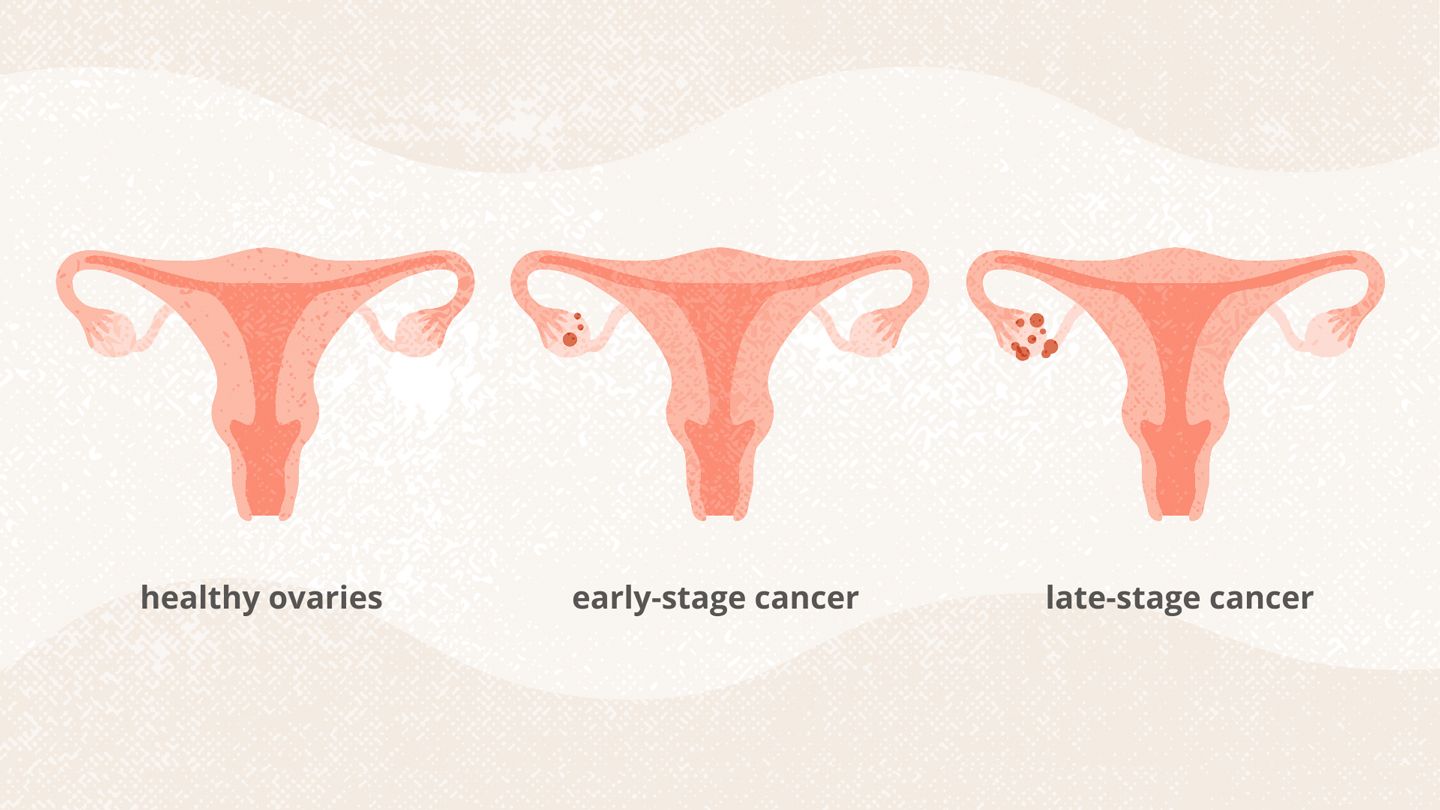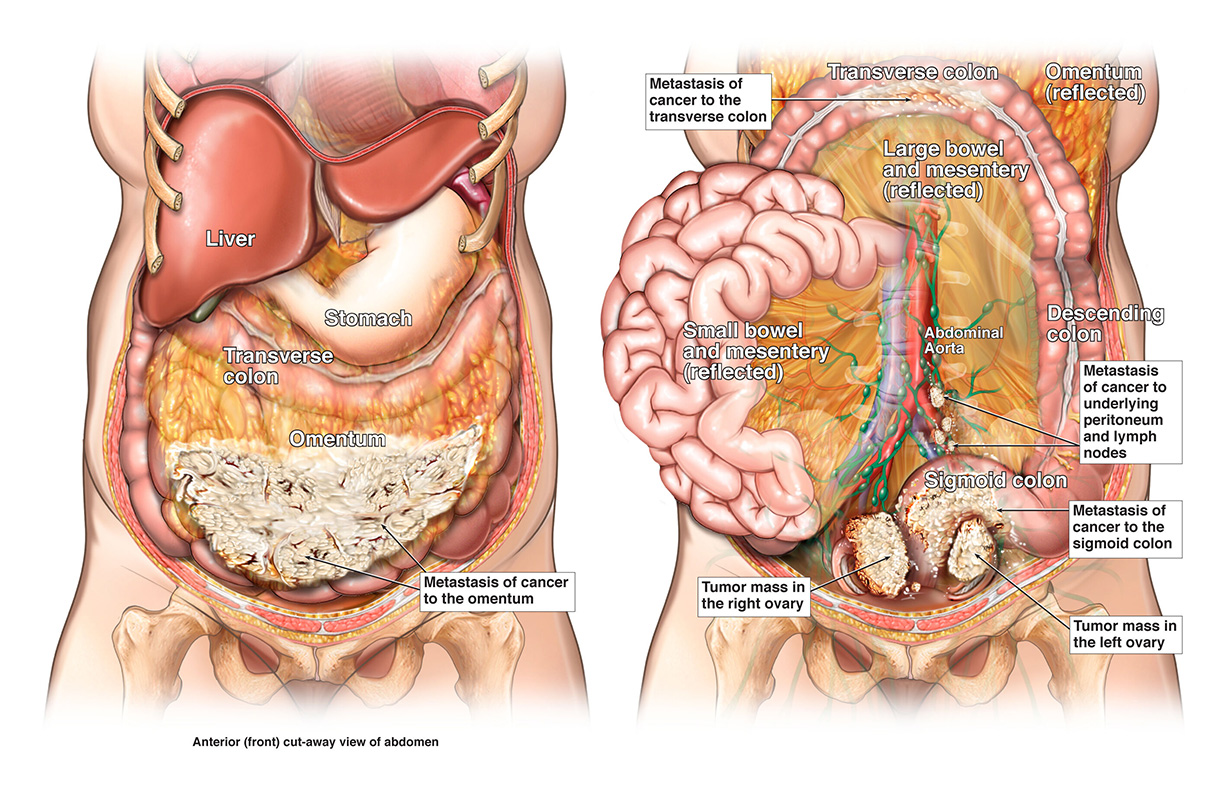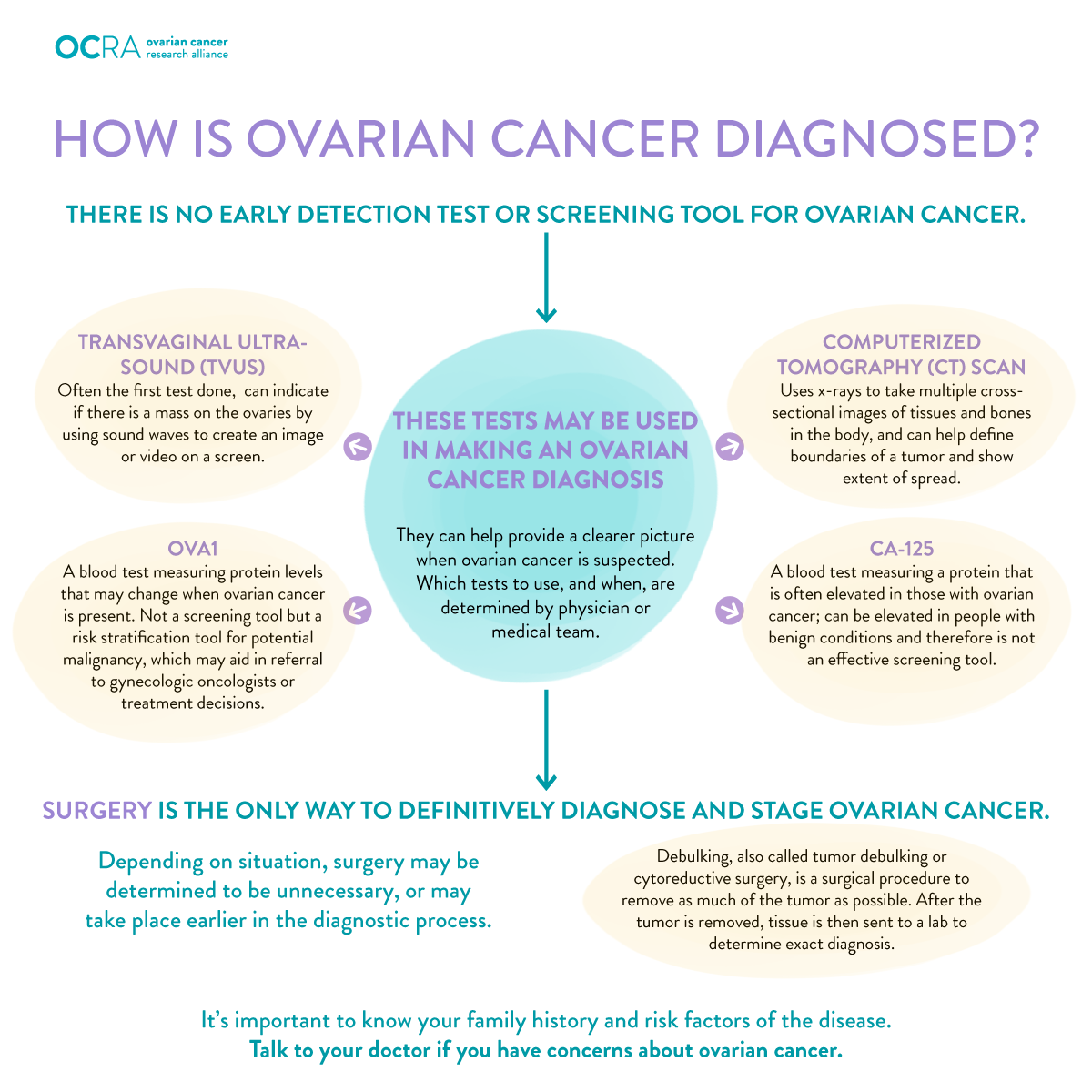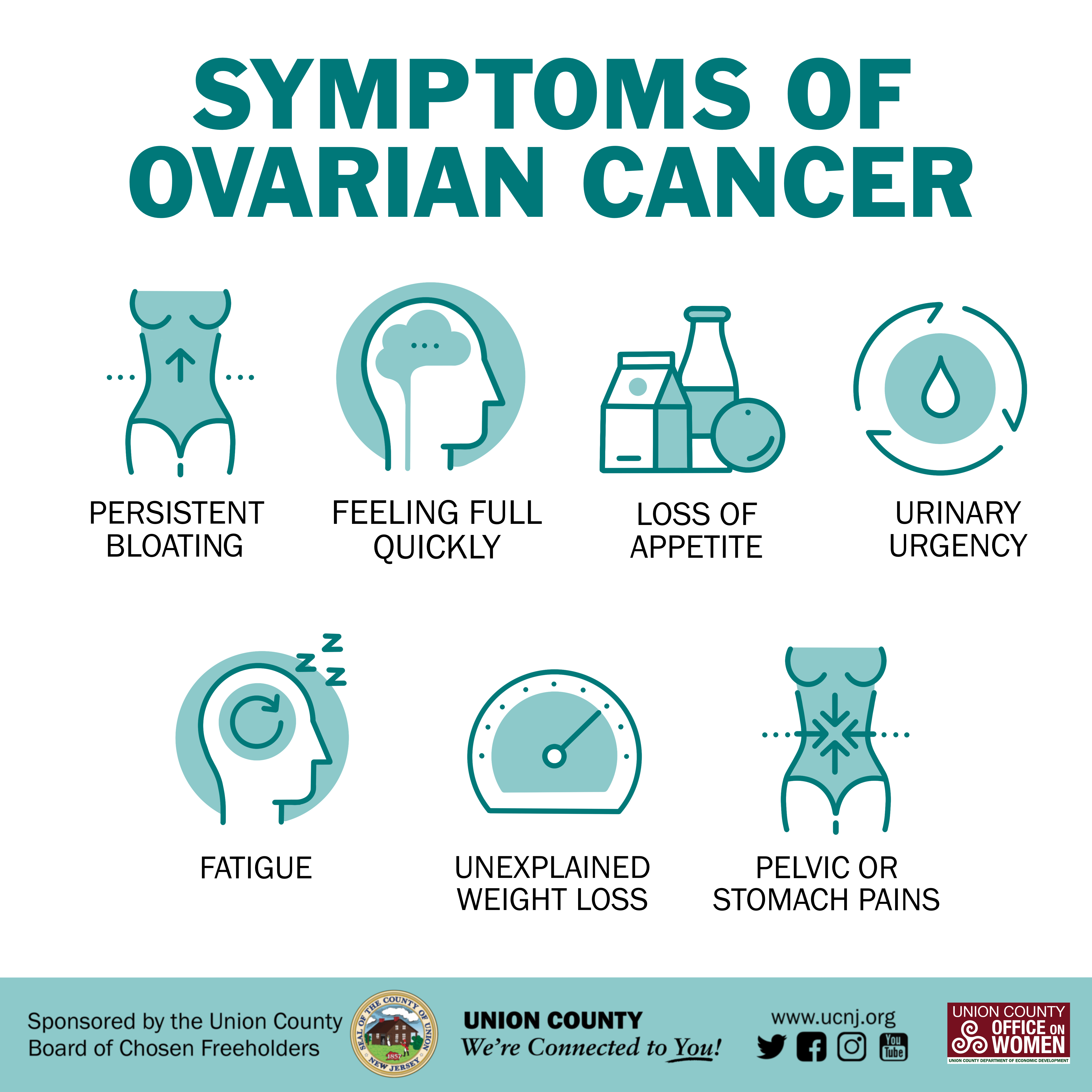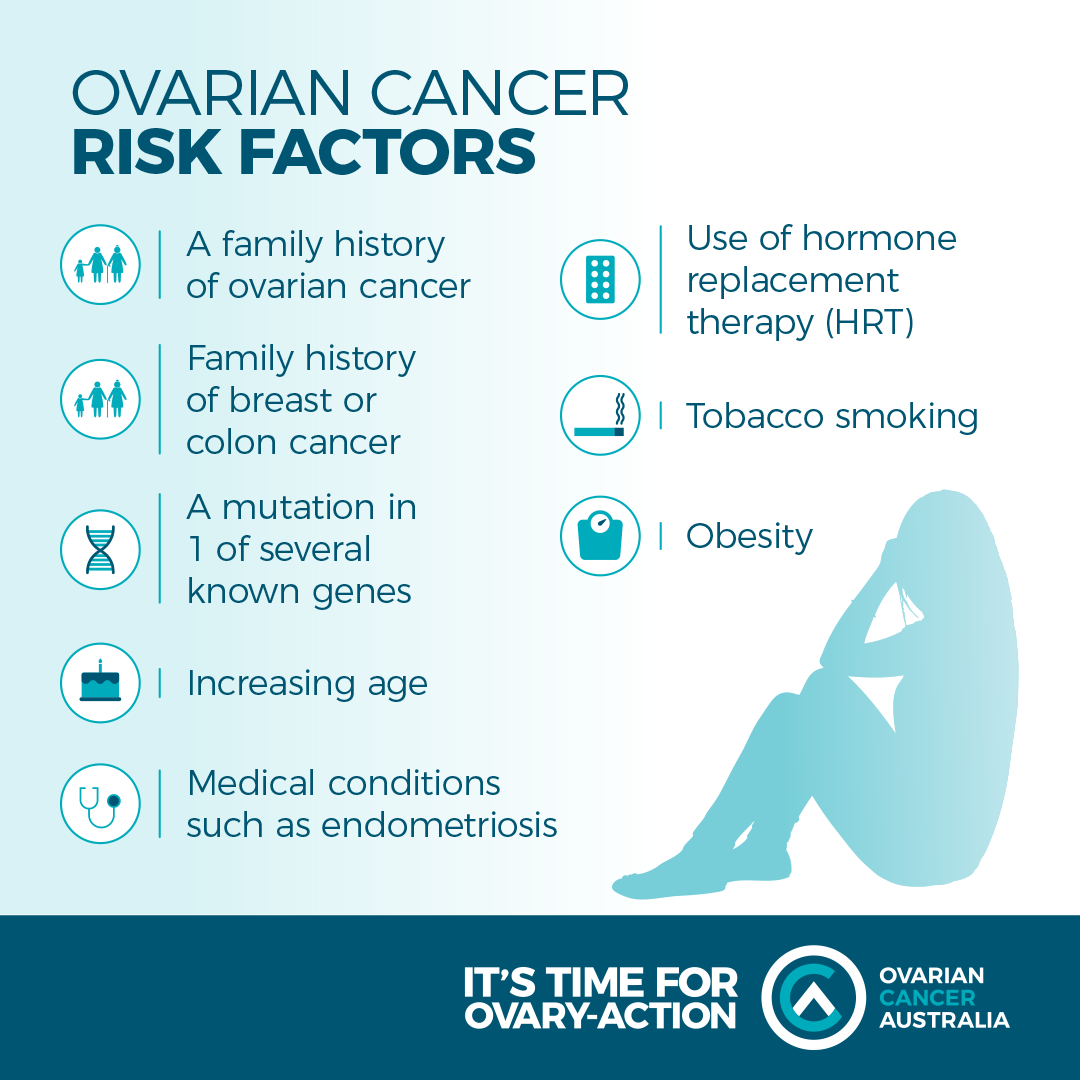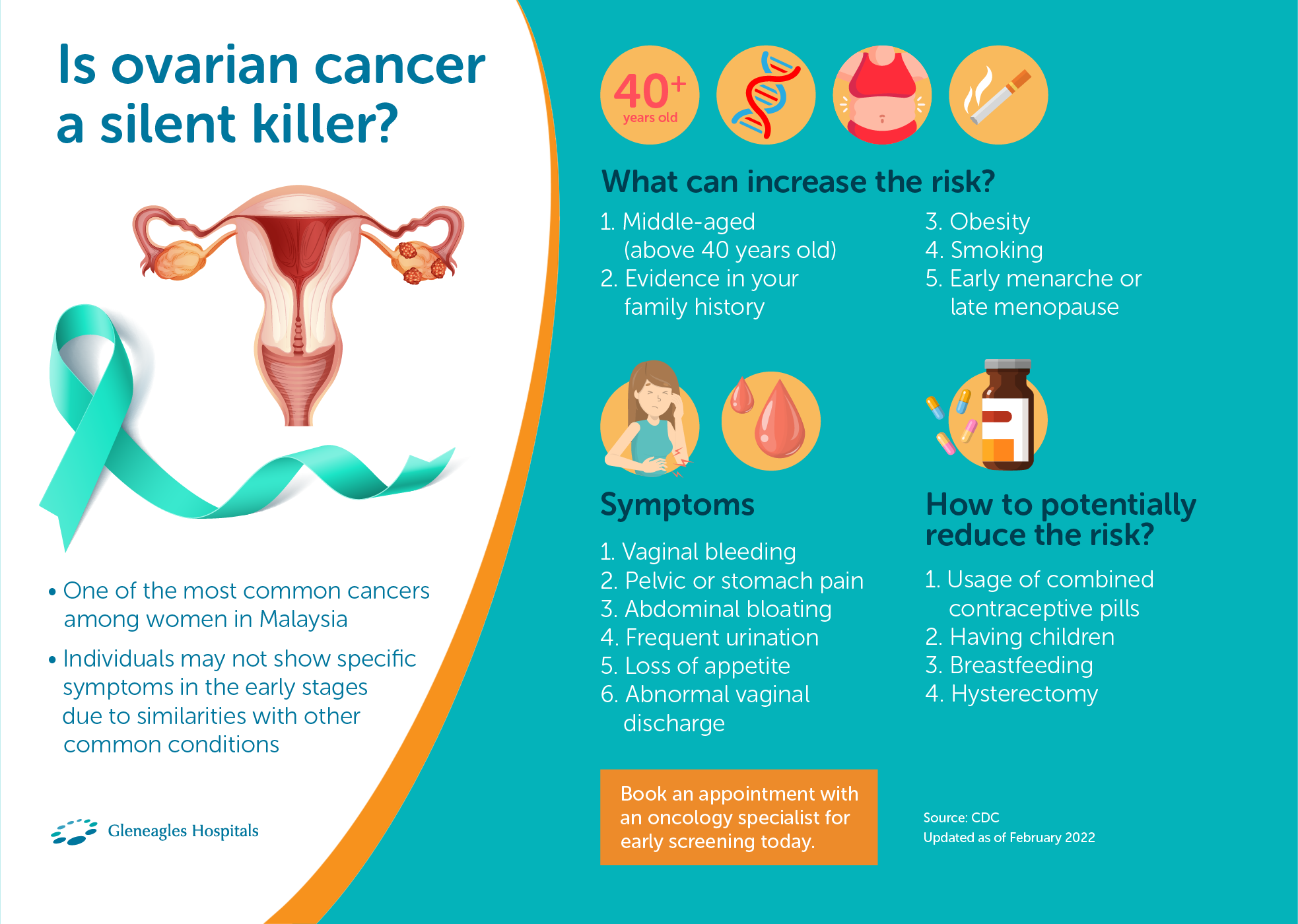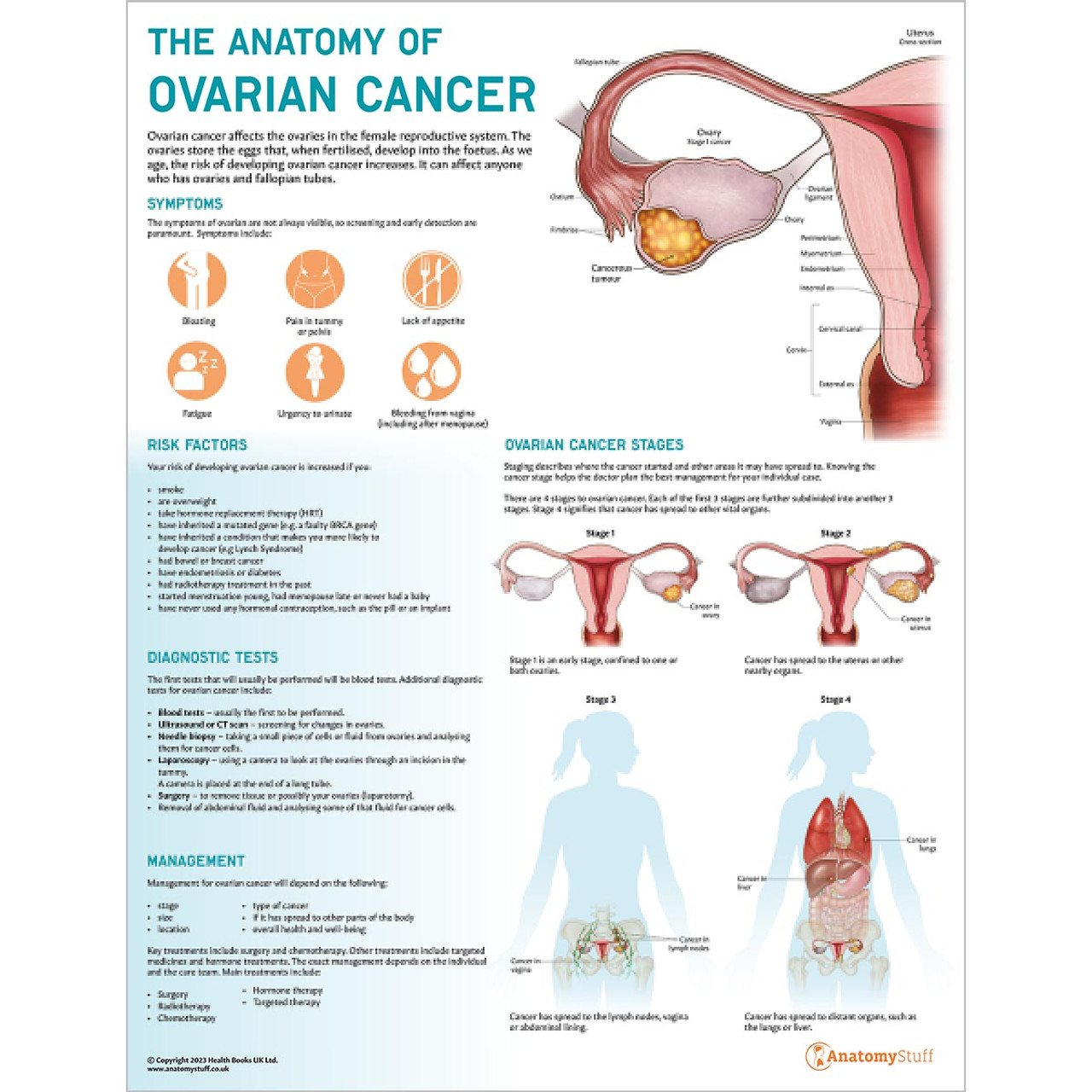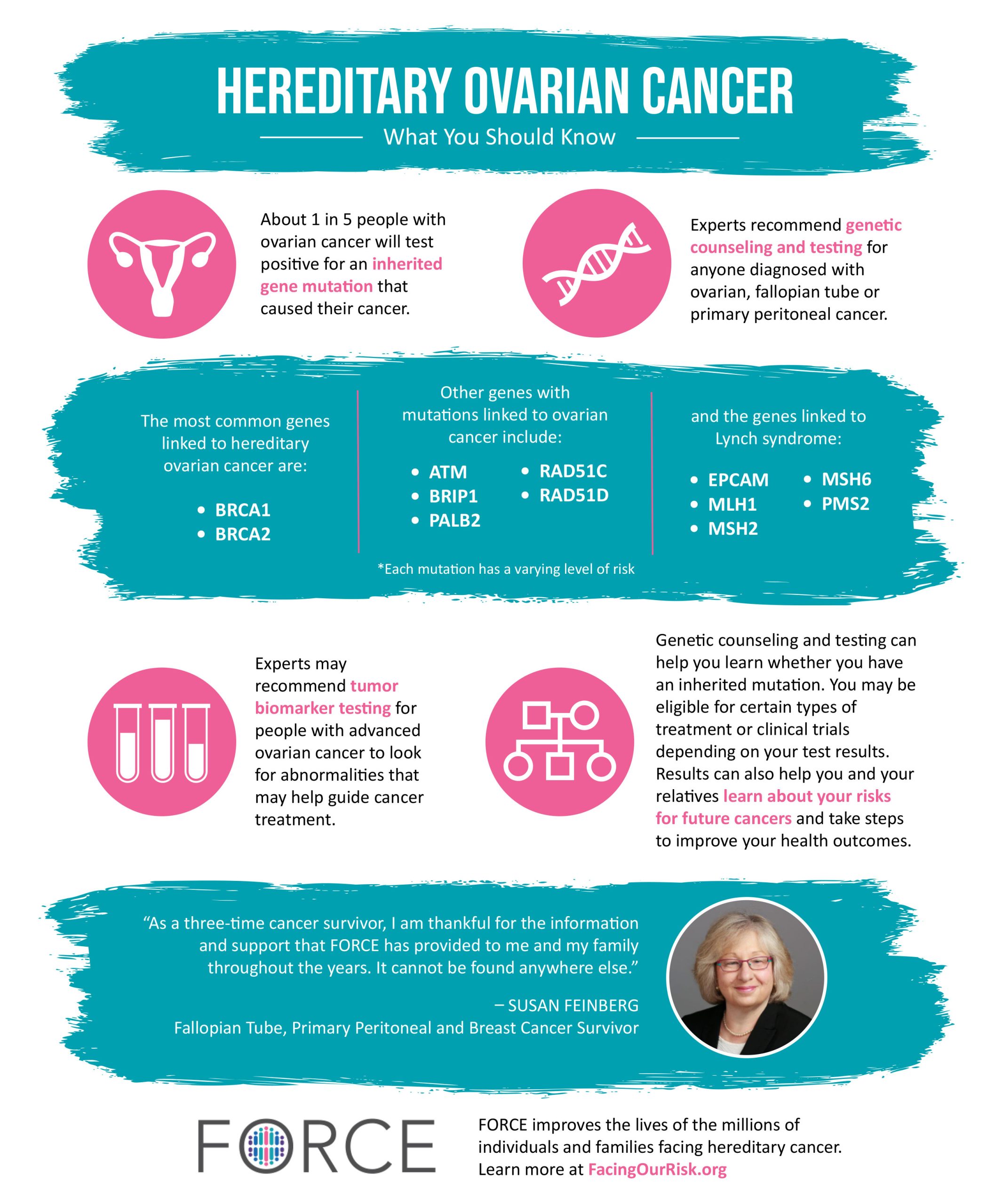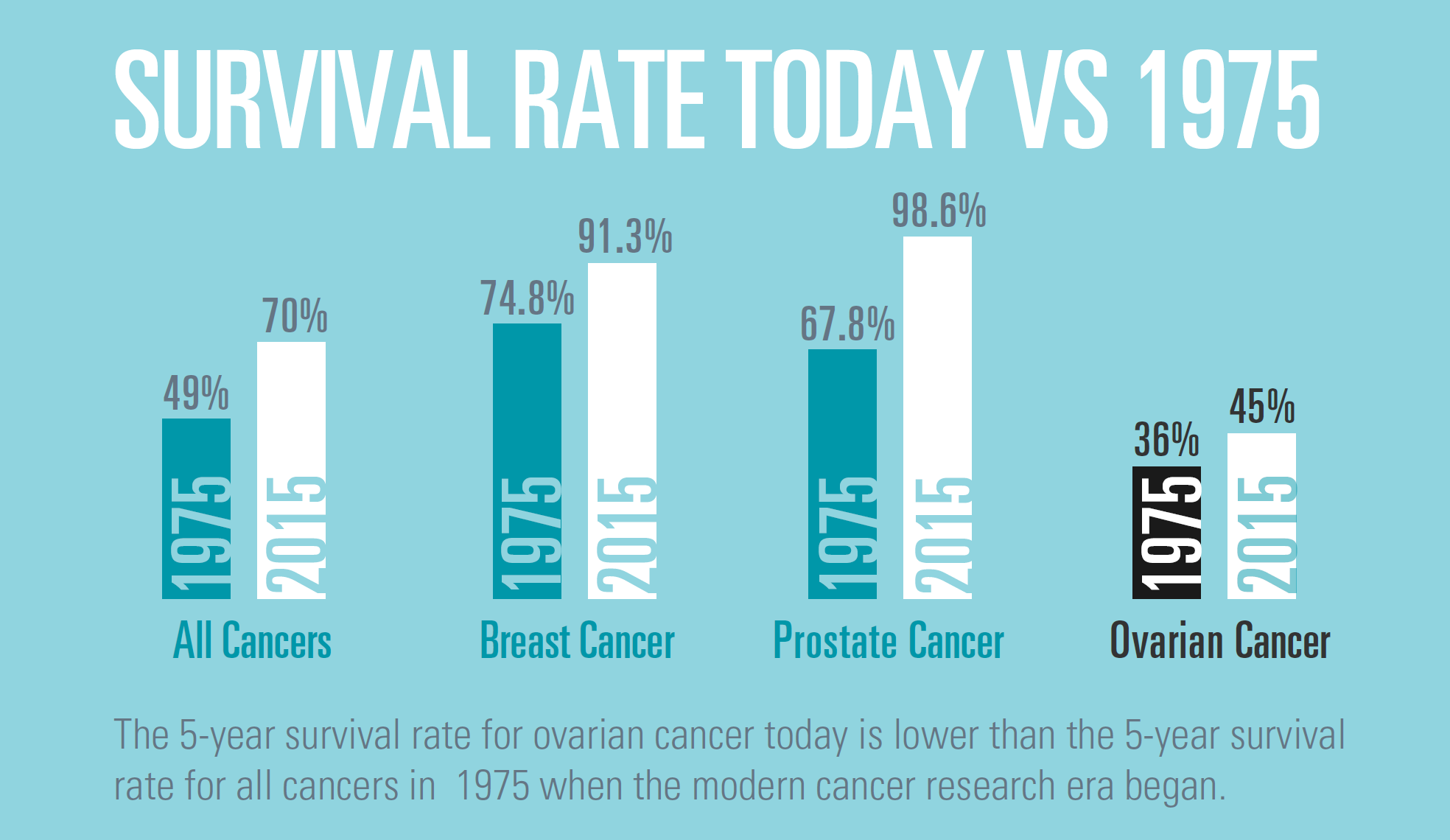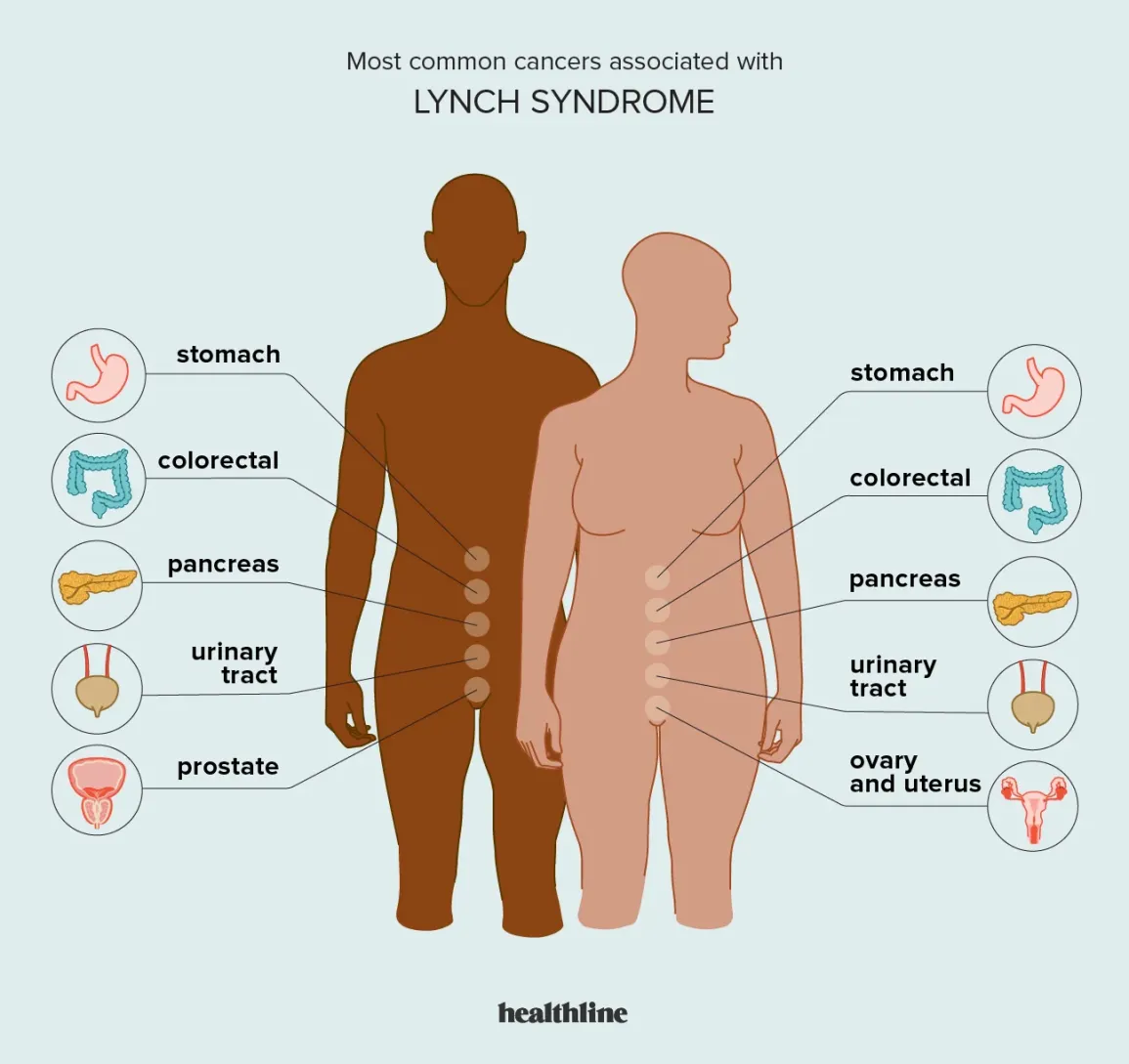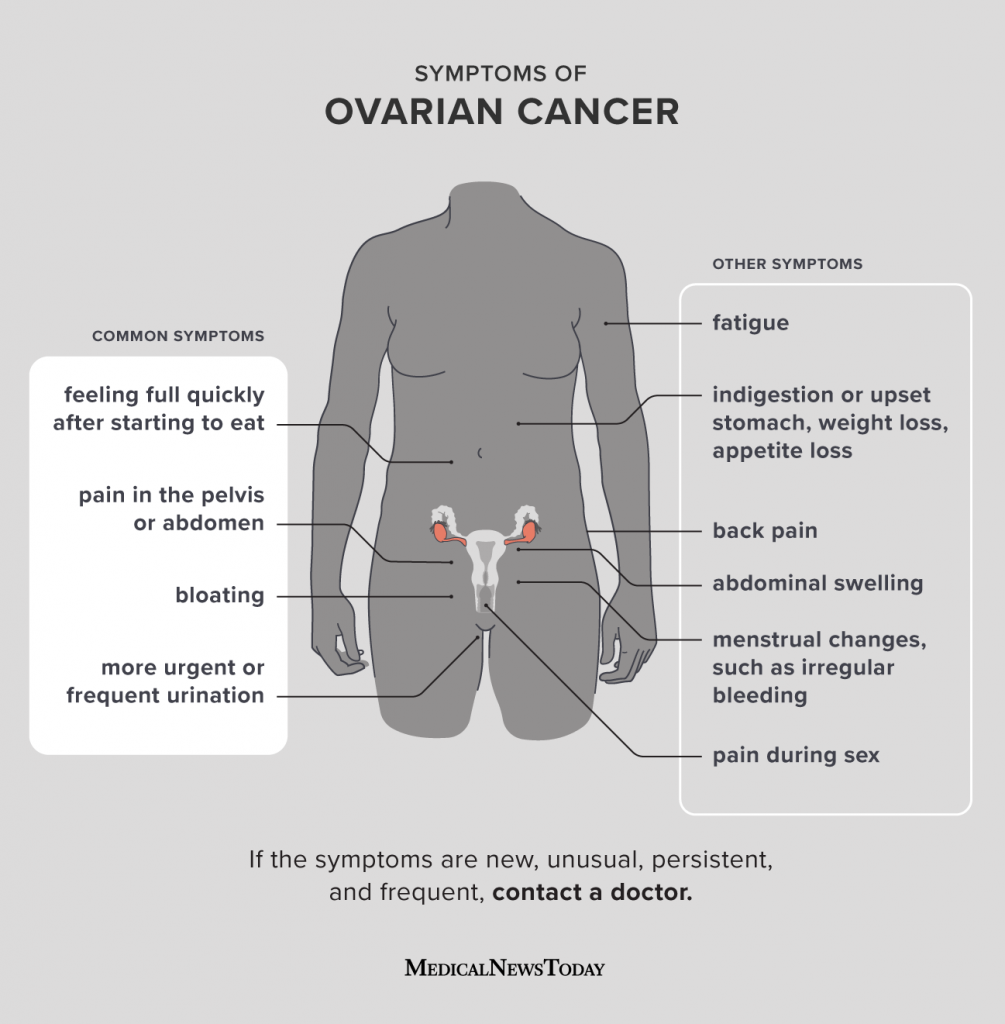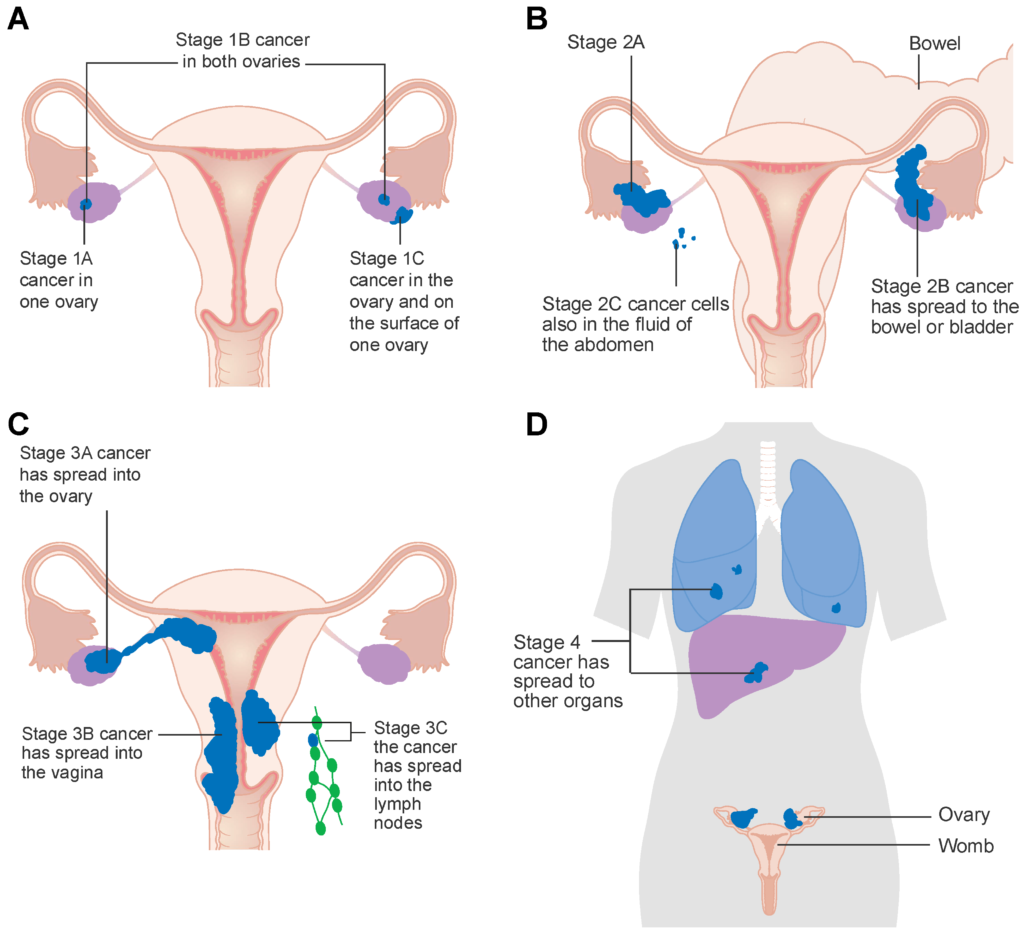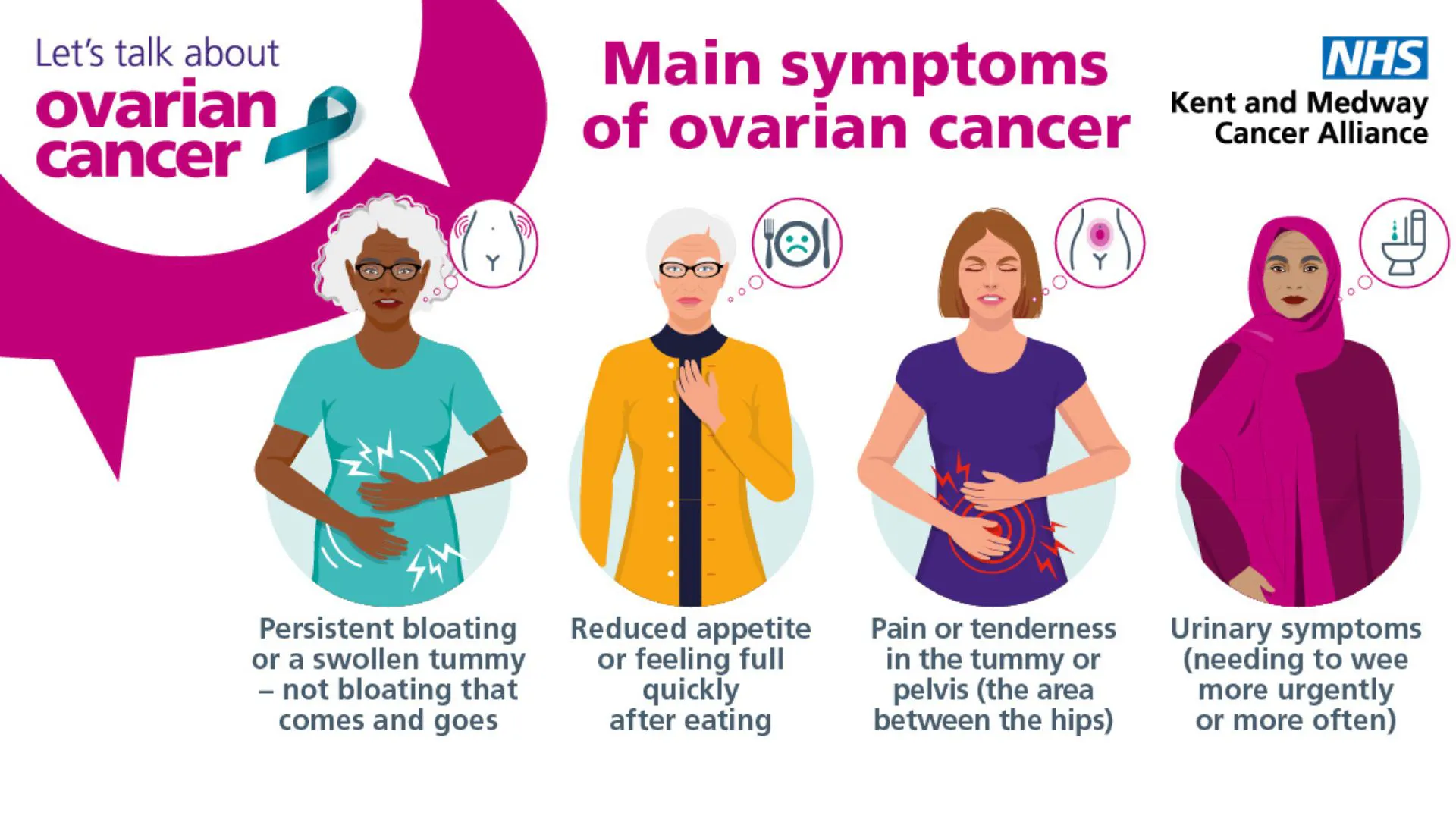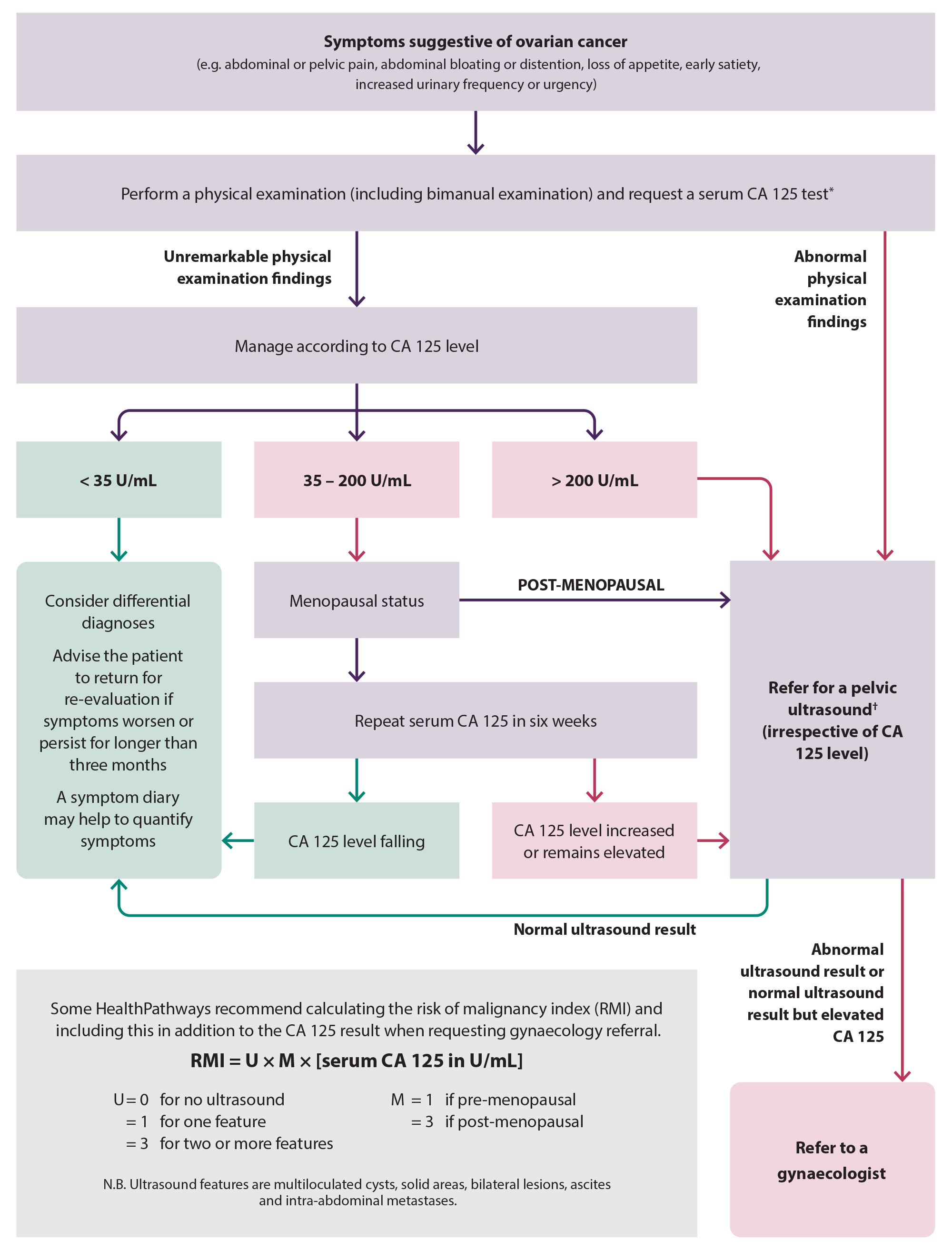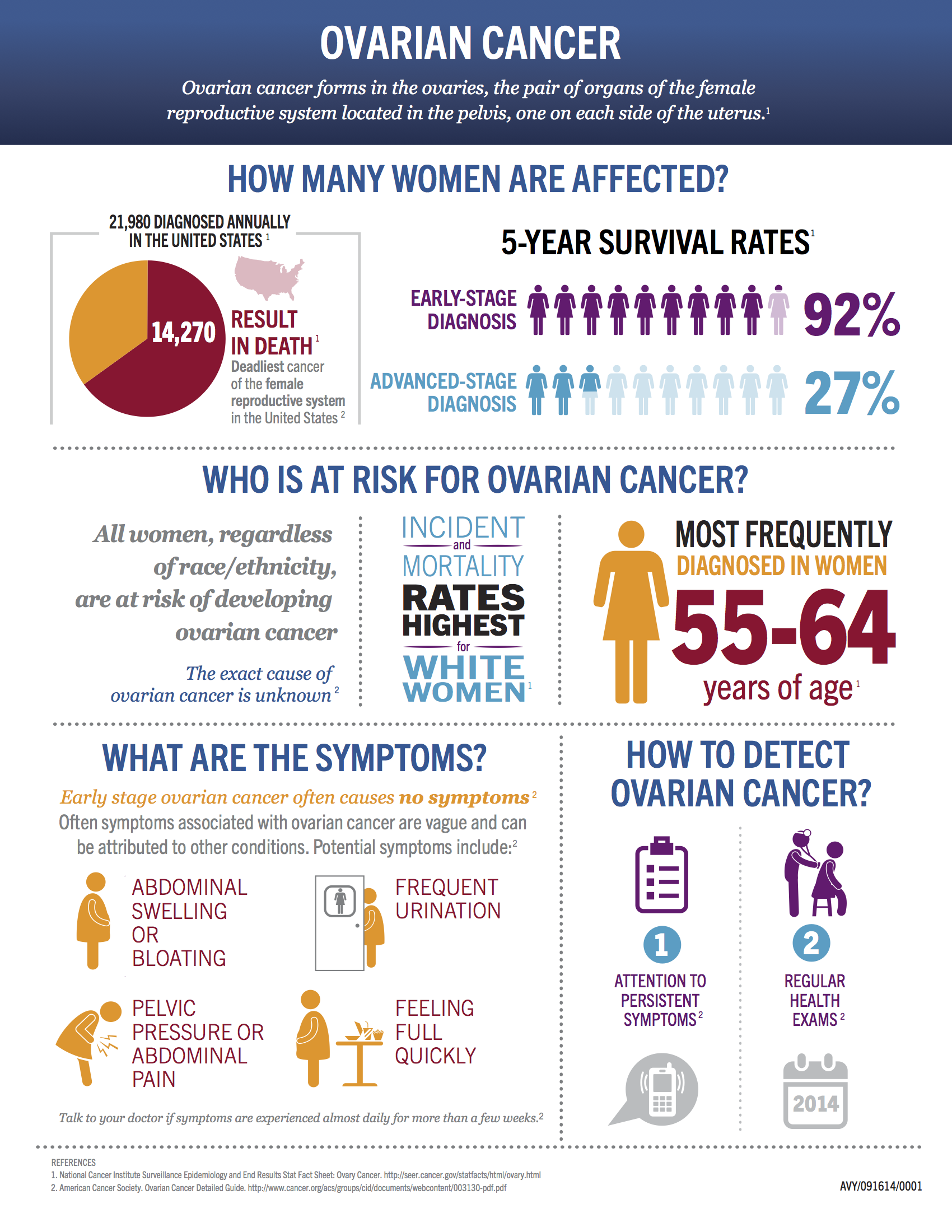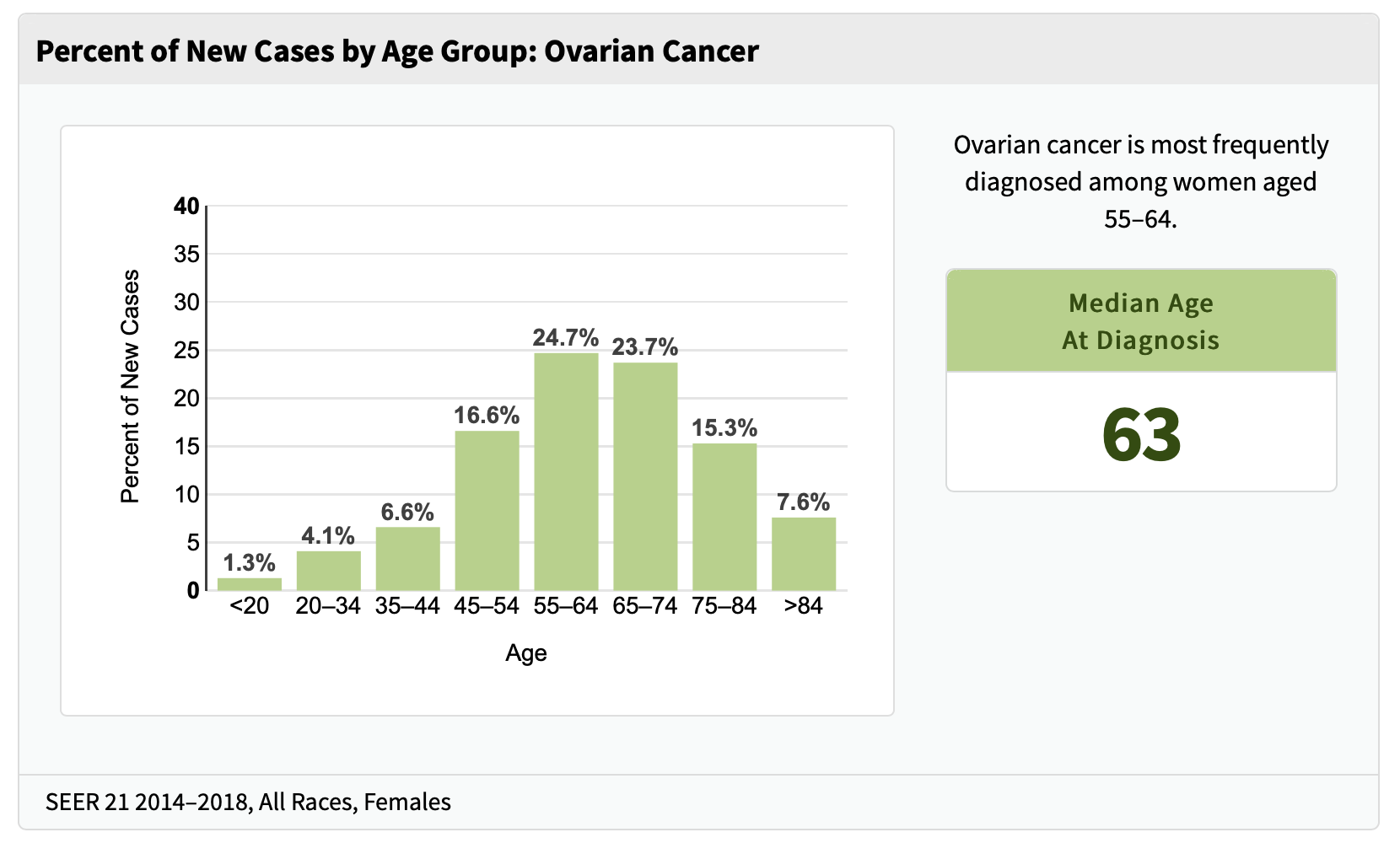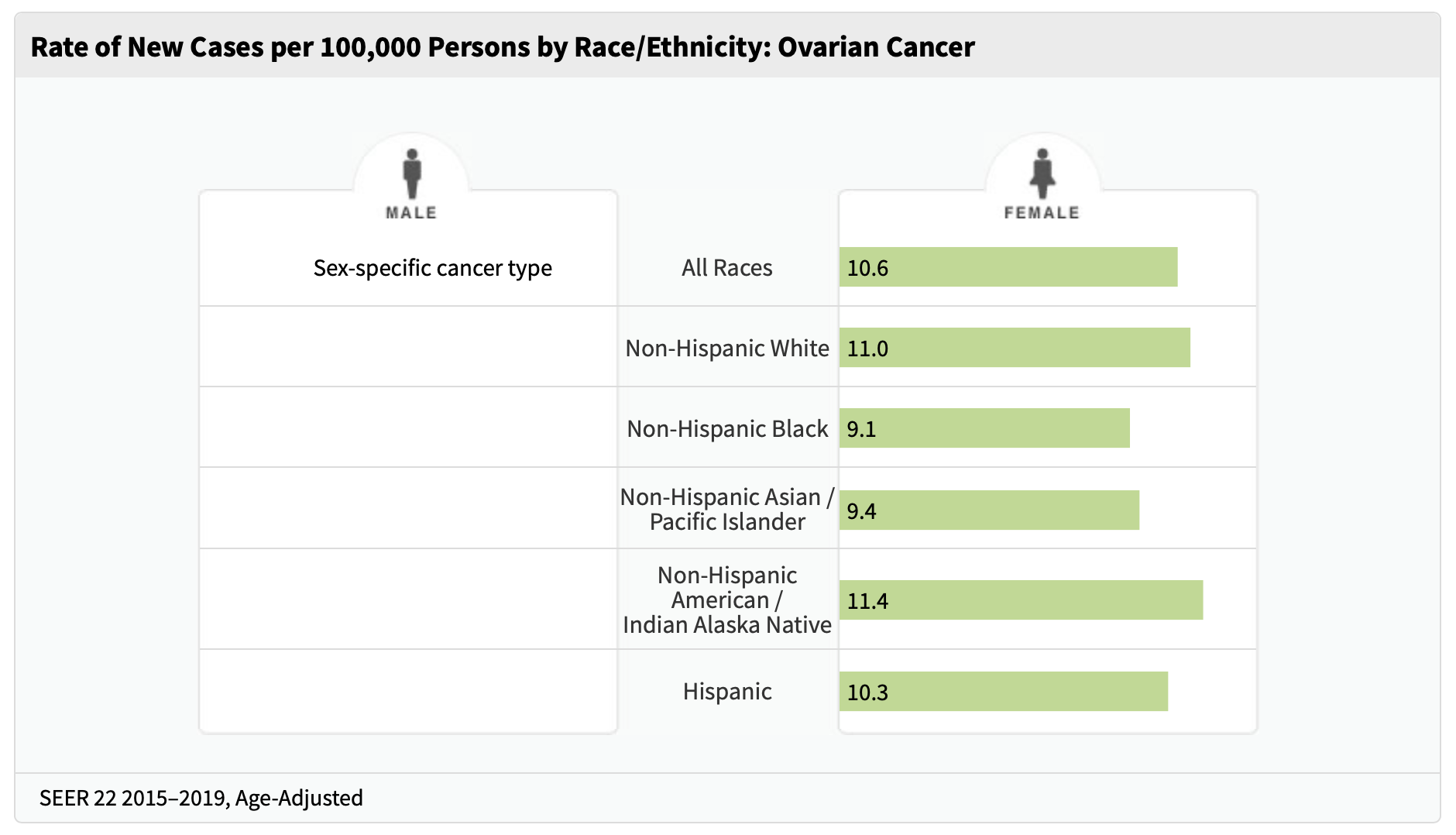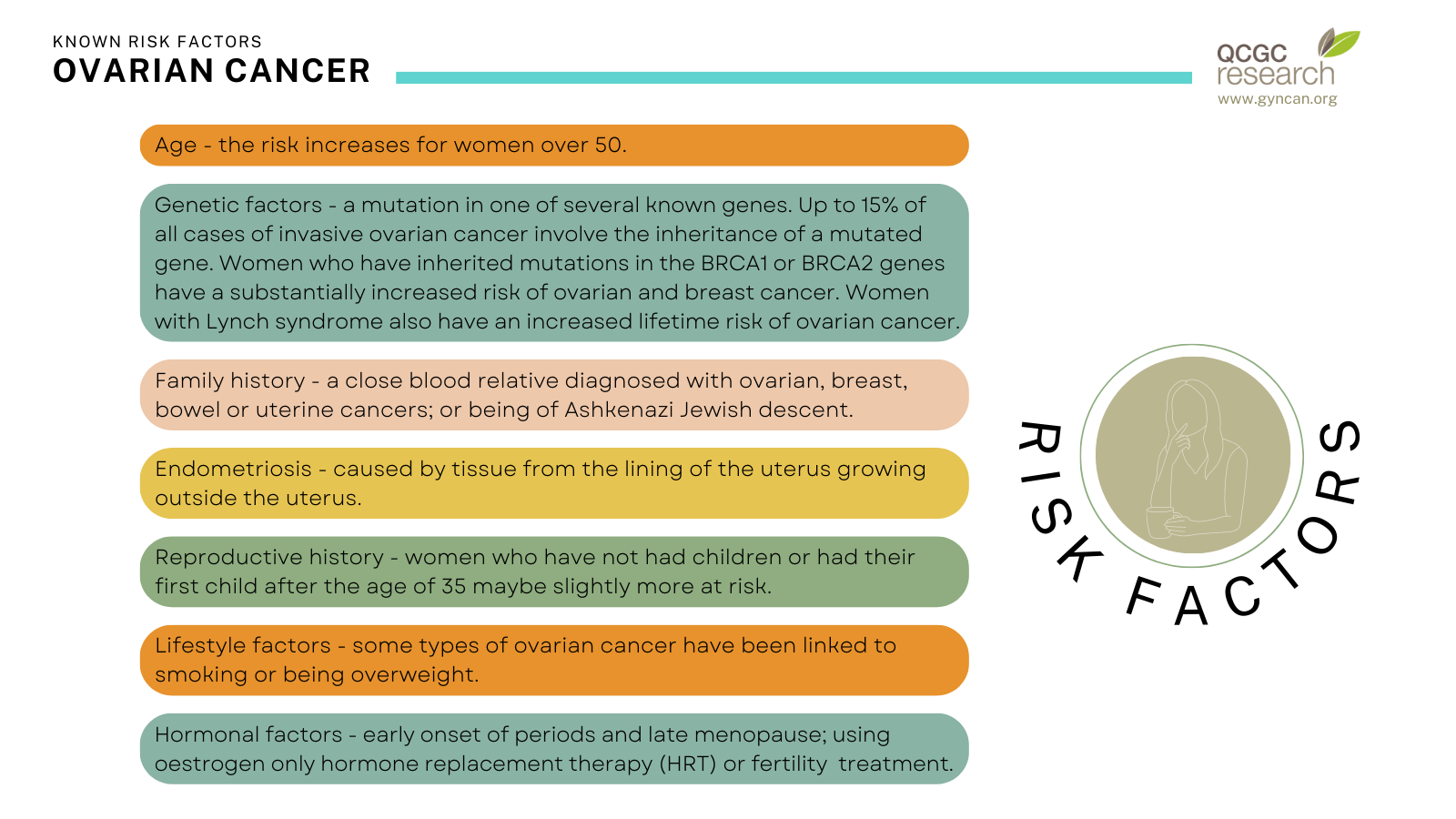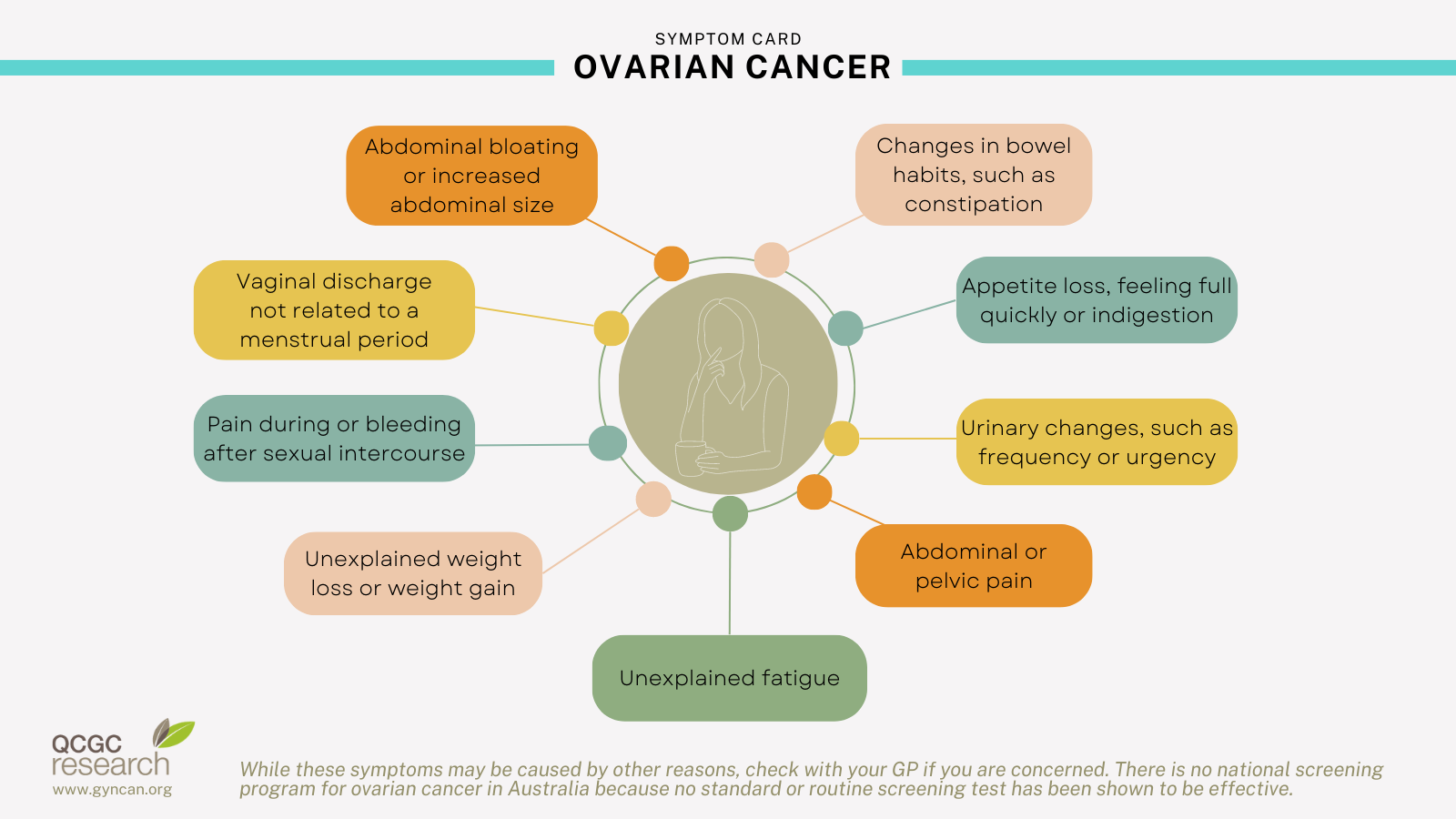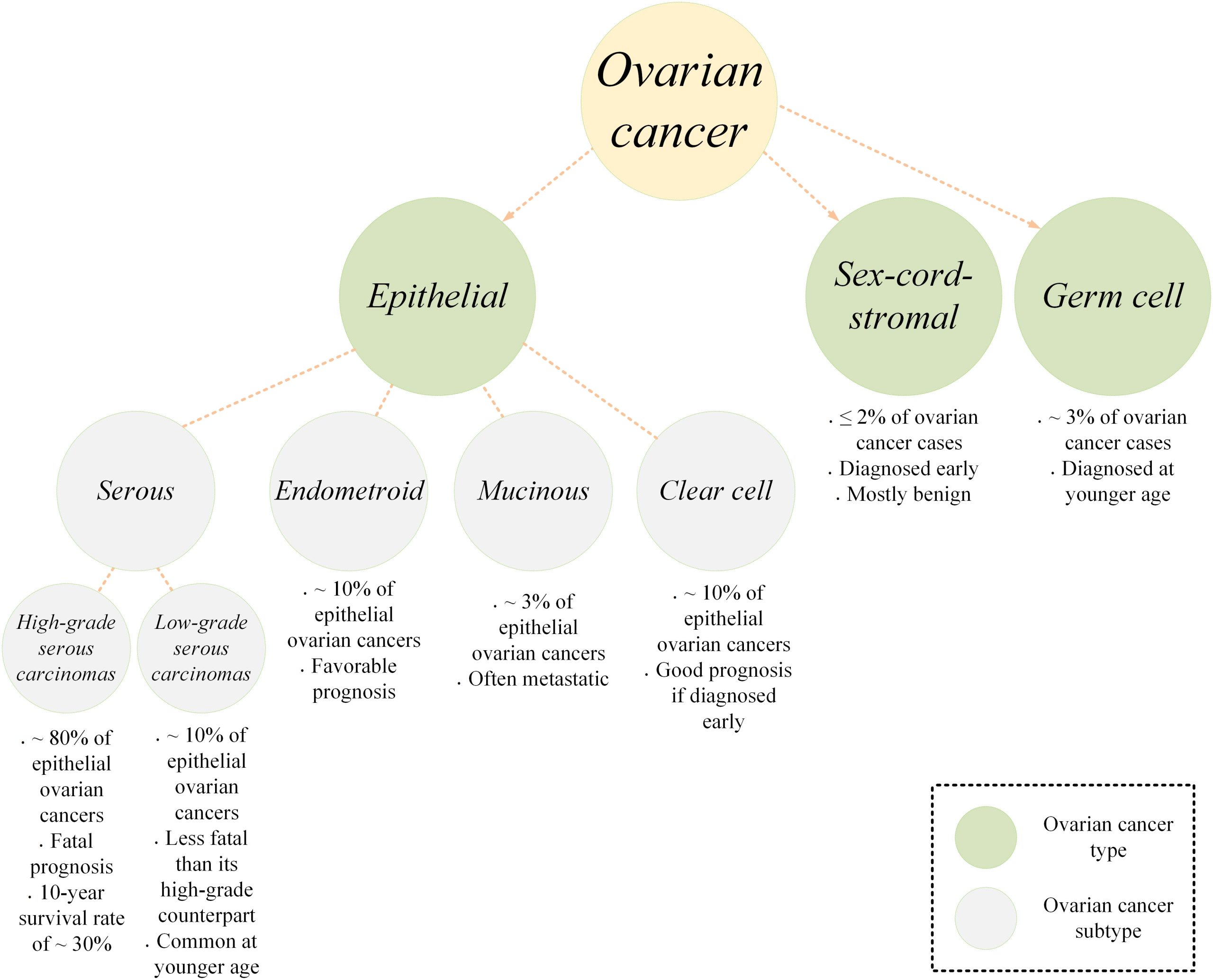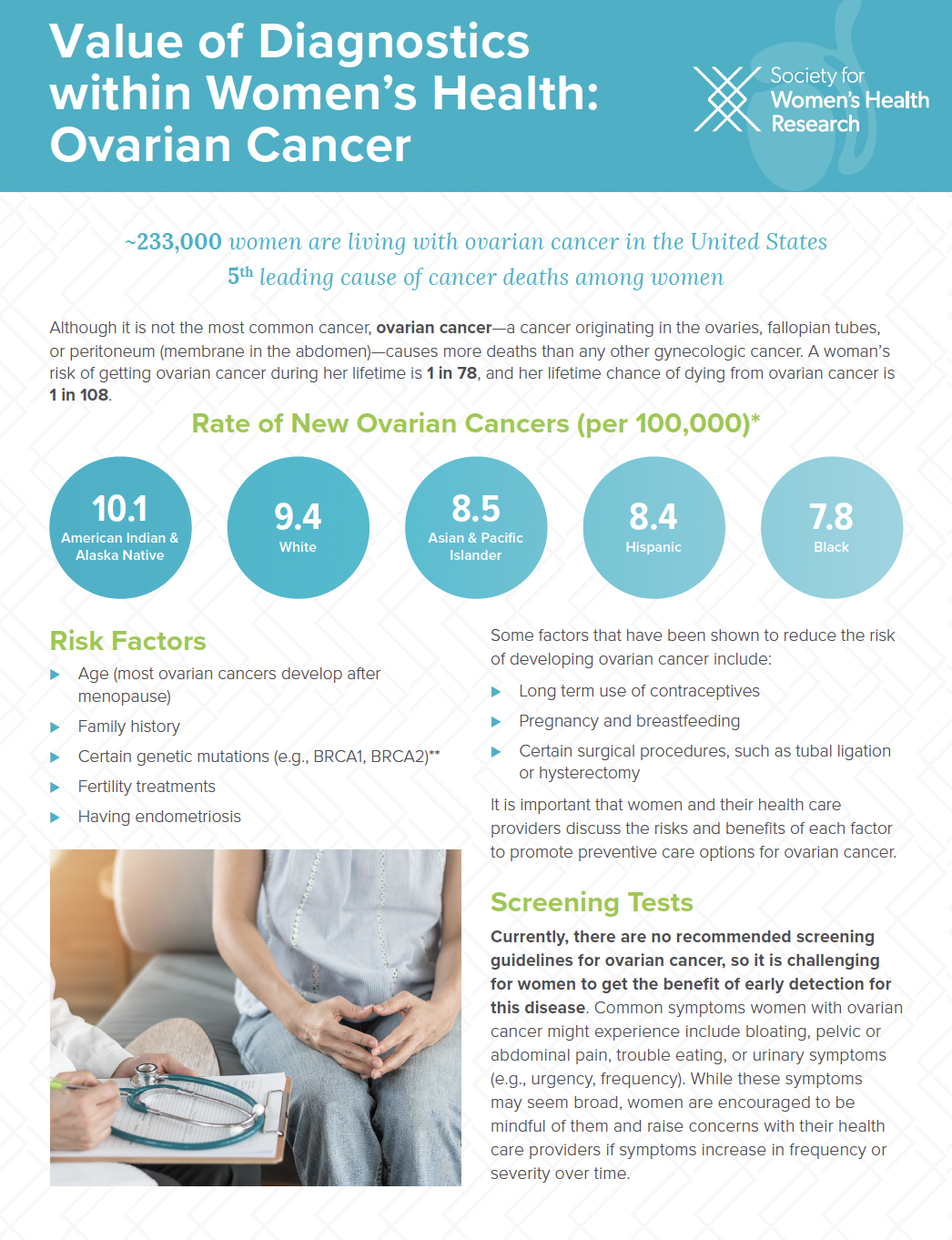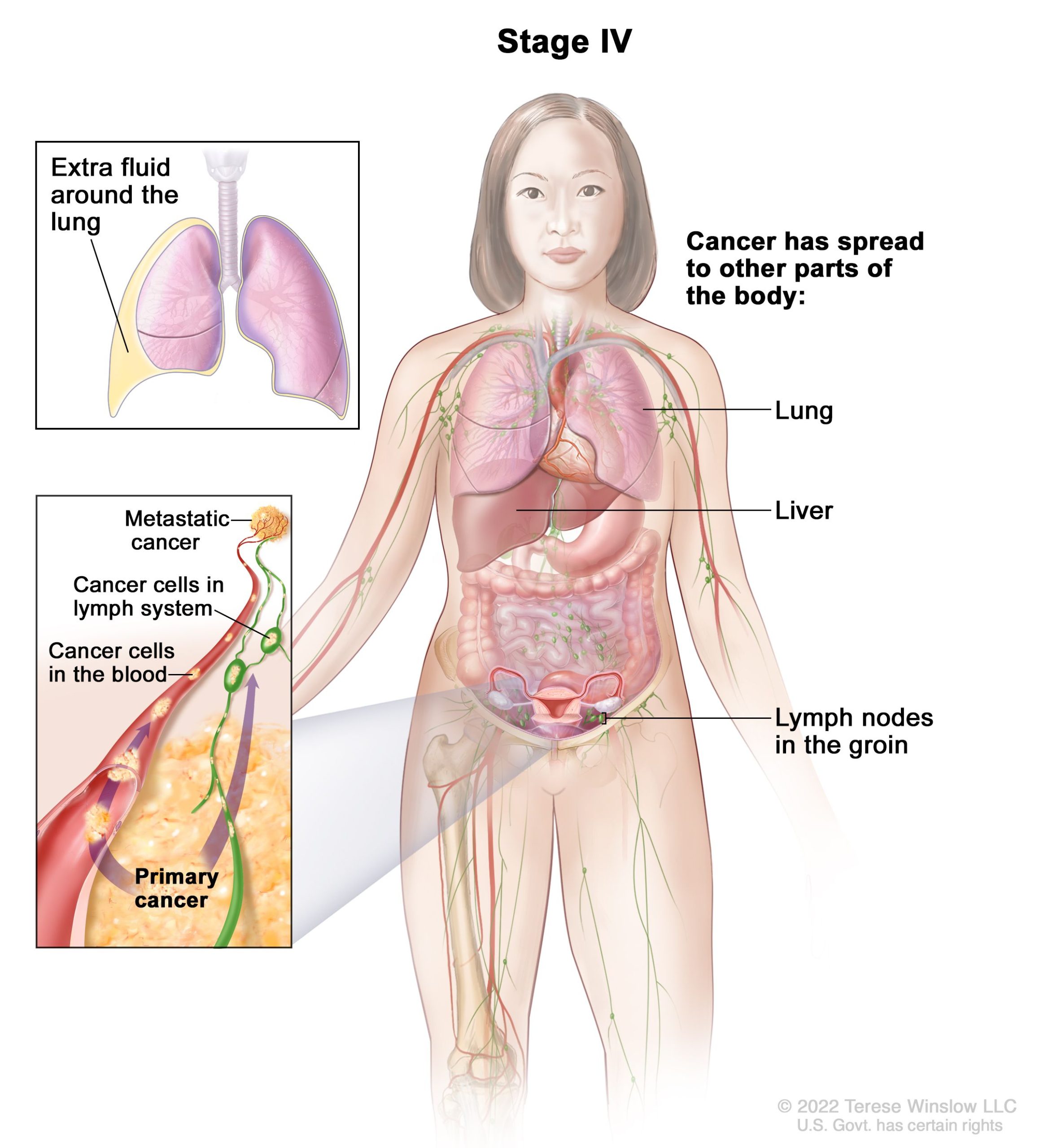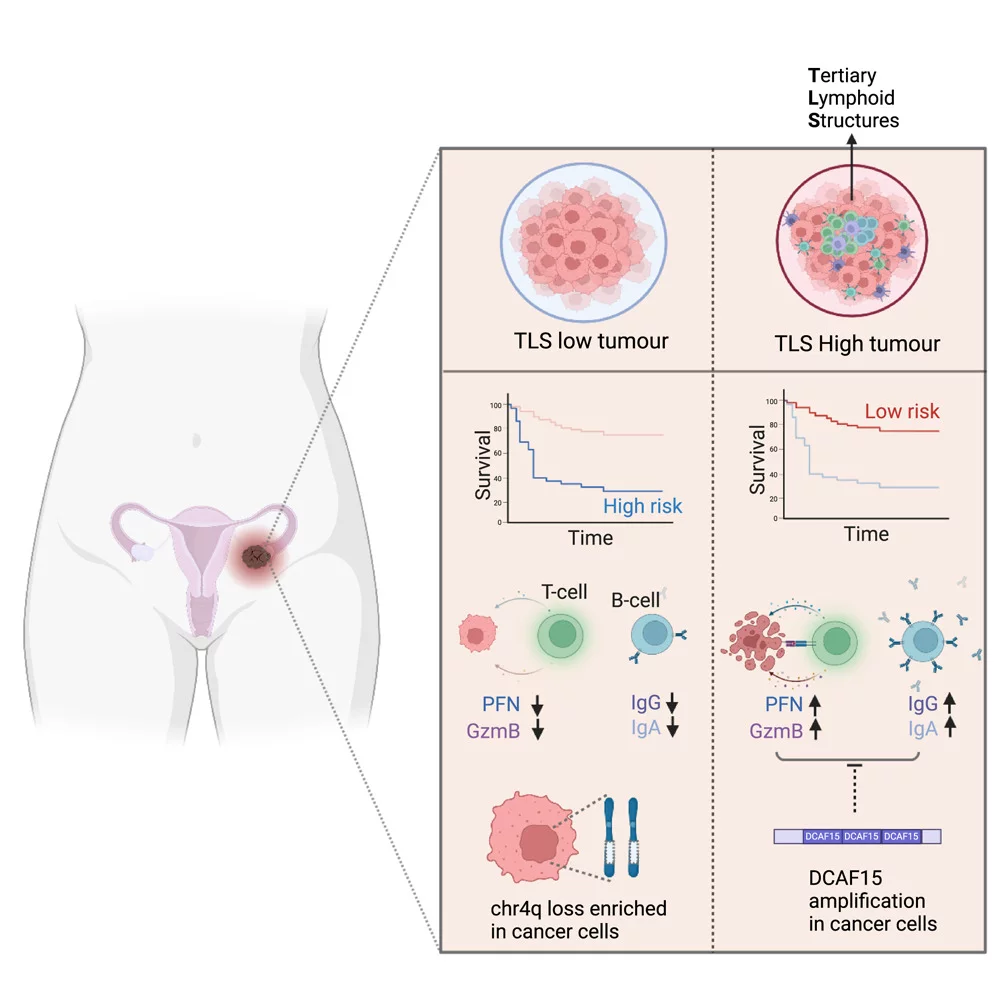
Key facts
- Ovarian cancer does not usually cause noticeable symptoms in its early stages and is often diagnosed at an advanced stage.
- Ovarian cancer is usually treated with surgery, often followed by other treatments.
- Ovarian cancer is more common in older women and those with a family history of cancer of the reproductive organs.
- If you have strong risk factors for ovarian cancer, you may wish to discuss your options with your doctor.
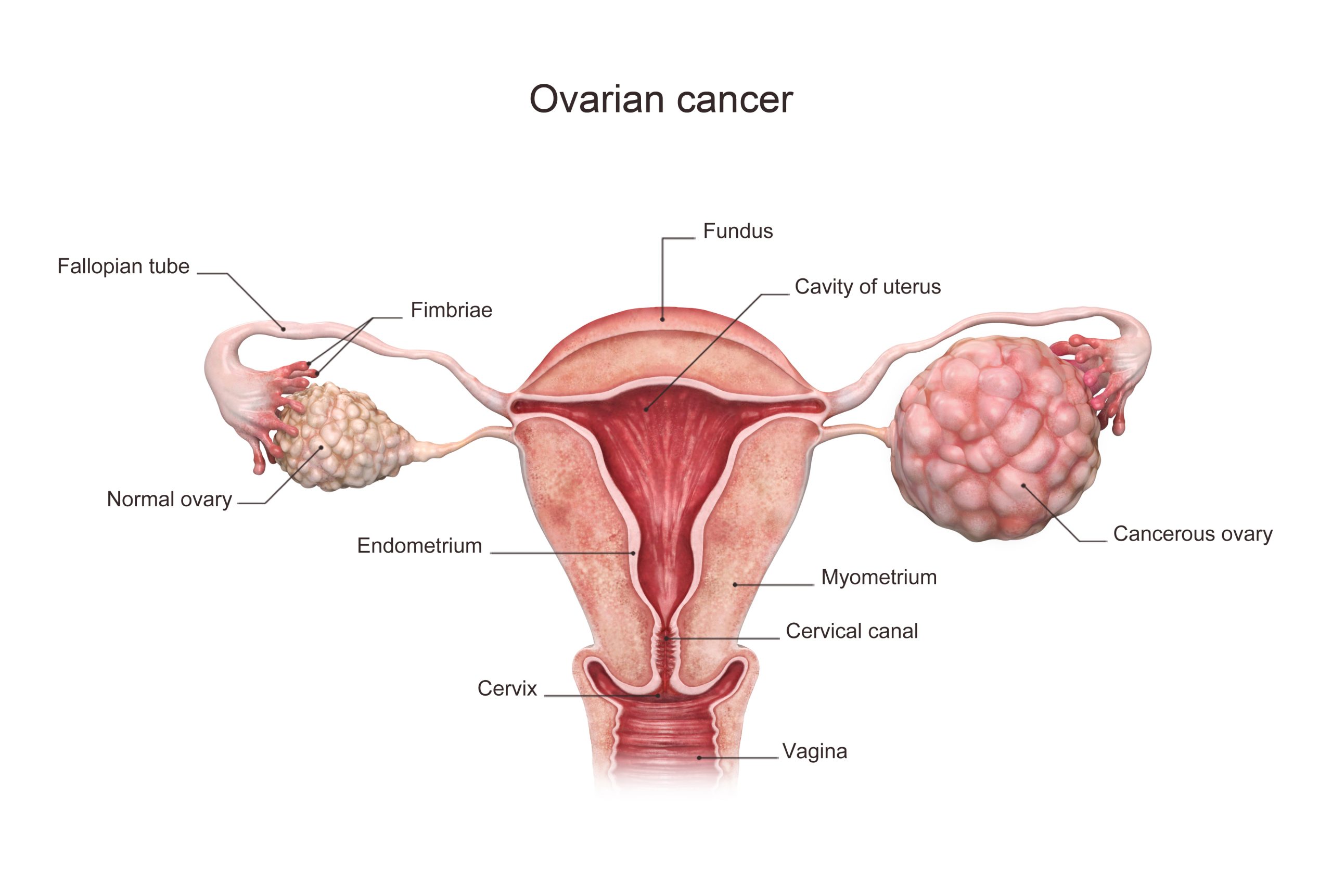
What is ovarian cancer?
Ovarian cancer is the presence of one or more tumours in the ovaries. This can occur when cells in an ovary start to grow in an uncontrolled way. About 1,400 women are diagnosed with ovarian cancer in Australia every year.
- There are three main types of ovarian cancer. The type of cancer usually depends on which ovarian cells are affected by cancer.
- Epithelial tumours affect the surface cells of the ovary. They make up about 90% of ovarian cancers and usually affect women over 60 years of age.
- Germ cell tumours affect the ovarian cells that normally develop into eggs, usually in women under 40 years of age. They make up about 5% of ovarian cancers.
Less common types of ovarian cancer include stromal cell tumours or sex cord-stromal tumours that affect the hormone-producing cells in the ovary, and mostly occur in women aged 40 to 60 years.
What are the symptoms of ovarian cancer?
Ovarian cancer does not usually cause noticeable symptoms in its early stages. This is because the ovaries are surrounded by a lot of space and a tumour may grow without pressing on other body organs or causing pain until it is quite large.
Some symptoms of ovarian cancer may include:
- feeling bloated
- abdominal or pelvic pain
- feeling full after eating small amounts
- urinary changes, such as difficulty urinating or needing to urinate urgently
Less common symptoms may include:
- changes in bowel habit
- unexplained weight loss or gain
- vaginal bleeding when you are not expecting it, such as between periods, after menopause or after sex
- pain during sex
What causes ovarian cancer?
No one knows exactly what causes ovarian cancer. However, there are a few factors that have been shown to affect your chance of developing ovarian cancer.
Risk factors that may increase your risk of developing cancer include:
- older age
- Ashkenazi Jewish ancestry
- family history of certain cancers, including ovarian, breast, colorectal and endometrial
- having certain faulty genes such as BRCA
- being overweight
- smoking
Factors that may reduce your risk of developing ovarian cancer include:
- having children before age 35
- breastfeeding
- taking the oral contraceptive pill (‘the Pill’); with every five years of use there is approximately a 20% reduction in the risk of ovarian cancer
- having your fallopian tubes ‘tied’ or removed
Many of these factors are not under your control, and it’s important to remember that most women with risk factors will not develop ovarian cancer.
If you are concerned about your own risk of ovarian cancer, see your doctor for more information and advice.
When should I see my doctor?
Many women may experience these symptoms at different stages of their lives. In most cases, they will not be caused by ovarian cancer. If you notice new symptoms or they continue for more than two weeks, you may wish to see your doctor.
Use the Symptom Checker to help you decide what to do about your symptoms.
How is ovarian cancer diagnosed?
If you or your doctor are concerned that you might have ovarian cancer, you may be referred for different types of examinations or tests.
Your GP or specialist doctor may perform a physical examination, including a pelvic examination, to look for signs of cancer. A pelvic examination may involve your doctor looking inside your vagina with a speculum. Your doctor may also check your uterus and ovaries for any lumps by placing 2 fingers inside your vagina, while feeling your abdomen with their other hand. Your doctor may perform a digital rectal examination by placing a gloved finger into your anus and rectum to check for any lump or masses. These examinations can be uncomfortable but should not be painful.
Your doctor may refer you for blood tests to check your general health and your kidney and liver function. In some cases, your doctor may also check your blood for a marker called CA-125 that is sometimes elevated in ovarian cancer.
Your doctor may refer you for scans to look for signs of ovarian cancer.
These may include:
- pelvic ultrasounds
- CT scans
- MRI scans
In some cases, your doctor may refer you for a colonoscopy to check that your symptoms are not caused by a bowel problem. During a colonoscopy, a specialist doctor inserts a thin, flexible camera through the anus into the bowel to check for any problems.
Ovarian cancer can only be diagnosed for certain after a biopsy. This involves taking a sample of the ovary or tumour and having it checked by a specialist doctor (pathologist) under a microscope. In most cases, a biopsy is taken during surgery.
If you are diagnosed with ovarian cancer, your doctor will consider how far it has spread and how fast the cancer cells are growing to determine its stage. This process helps your medical team decide on the best treatment plan for you.
How is ovarian cancer treated?
Ovarian cancer is treated in a few different ways. The treatment plan recommended by your doctor will depend on many factors including:
- the type and stage of your cancer
- your age
- your general health
- whether you would like to have children
Most cases of ovarian cancer are treated with surgery. This surgery is usually complex and is performed by a specialist team in a hospital with experience treating reproductive cancers. The exact type of surgery will depend on how far the cancer has spread, but may involve removing your ovaries, uterus, fallopian tubes, cervix, and part of your bowel or bladder.
Your doctor may recommend other treatments in addition to surgery, or instead of surgery if you are not well enough for an operation. These treatments may include chemotherapy, radiotherapy, and/or targeted therapies. Your doctor will discuss with you the benefits, risks and side effects of each of these treatments in your situation.
Can ovarian cancer be prevented?
There are currently no screening tests available to routinely check for ovarian cancer.
Some healthy women who are considered at high risk of developing ovarian cancer may choose to have their ovaries removed (a procedure known as a prophylactic bilateral oophorectomy) to reduce their risk. Women who are at a higher risk of developing ovarian cancer may include those who have a strong family history of ovarian cancer and those with a genetic mutation that increases their risk of developing ovarian cancer. If you are concerned about your own risk, you may wish to discuss your options with your doctor.
What are the complications of ovarian cancer?
Ovarian cancer and its treatment can lead to several symptoms and problems. You may experience many or none of these, depending on the type and stage of cancer and the treatment you are receiving.
Common problems may include:
- fatigue, especially if you are having chemotherapy or radiotherapy
- changes in bowel habit
- fluid build-up in your abdomen (ascites), lungs (pleural effusion) or limbs (lymphoedema)
If your ovaries are removed to treat ovarian cancer, you will go through menopause. This means your periods will stop and you may experience other menopause symptoms. Treatment for ovarian cancer may also impact your sexuality and self-esteem.
Ovarian cancer itself may not necessarily affect your fertility, but most of the treatments used for ovarian cancer will affect your ability to have children. If having children is important to you, speak to your doctor about options for fertility preservation before starting cancer treatment.
Your medical team is very experienced at managing complications associated with ovarian cancer and treatment. They can give you advice about managing any side effects that you may be experiencing.
